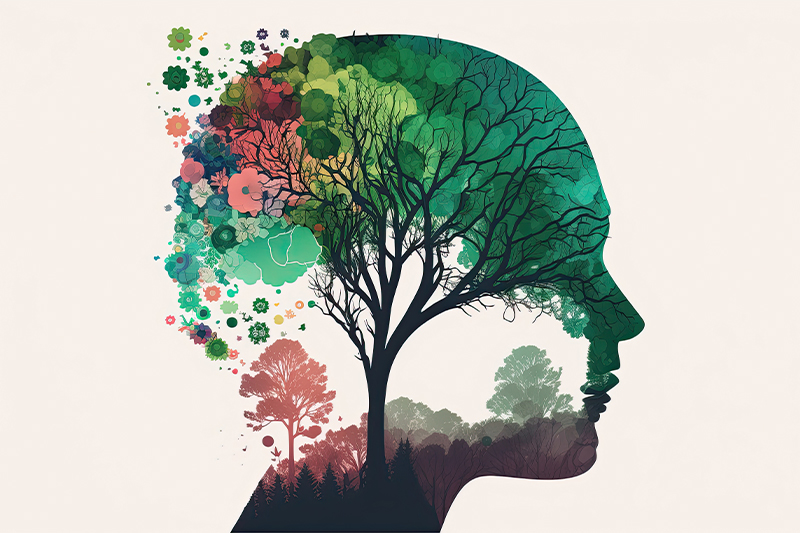In behavioral health, ICD-10 codes are essential for diagnosing and documenting mental health and substance use disorders. Mental health professionals utilize these codes to communicate essential information to insurance providers. Medical coding services play a crucial role in ensuring that healthcare providers receive accurate reimbursement for their services while maintaining compliance with coding standards and regulations. Accurate coding helps in substantiating the necessity and rationale behind the services they have provided, streamlining the reimbursement process for their services. The integration of electronic health records has streamlined the process of behavioral medicine medical billing, making it more efficient and accurate for healthcare providers. CPT codes detail the specific services or procedures performed, while ICD-10 codes provide the underlying diagnosis and context that justify the need for those services. Additionally, ICD-10 codes serve as a valuable tool for care providers by offering a quick overview of a patient’s condition and treatment history.
Commonly Used ICD-10 Codes in Behavioral Health
- Depression and Mood Disorders:
- F32.9 – Major depressive disorder, single episode, unspecified
- F33.2 – Major depressive disorder, recurrent, severe without psychotic features
- F34.1 – Dysthymic disorder
- F41.1 – Generalized anxiety disorder
- F31.9 – Bipolar disorder, unspecified
- Anxiety Disorders:
- F40.9 – Phobic anxiety disorder, unspecified
- F41.0 – Panic disorder (episodic paroxysmal anxiety)
- F42.0 – Obsessive Compulsive Disorder
- Post-traumatic Stress Disorder (PTSD):
- F43.10 – PTSD, unspecified
- F43.12 – Chronic PTSD
- F43.8 – Other reactions to severe stress
- Substance Use Disorders:
- F10.10 – Alcohol abuse, uncomplicated
- F11.10 – Opioid abuse, uncomplicated
- F12.10 – Cannabis abuse, uncomplicated
- F13.10 – Sedative, hypnotic, or anxiolytic abuse, uncomplicated
- F15.10 – Other stimulant abuse, uncomplicated
- Eating Disorders:
- F50.9 – Eating disorder, unspecified
- F32.2 – Major depressive disorder, single episode, severe with psychotic features, with eating disorder
- F50.02 – Anorexia nervosa, restricting type
- Schizophrenia and Other Psychotic Disorders:
- F20.9 – Schizophrenia, unspecified
- F25.0 – Schizoaffective disorder, bipolar type
- F22 – Delusional disorder
- Attention-Deficit/Hyperactivity Disorder (ADHD):
- F90.0 – ADHD, predominantly inattentive type
- F90.1 – ADHD, predominantly hyperactive-impulsive type
- Personality Disorders:
- F60.9 – Personality disorder, unspecified
- F60.3 – Borderline personality disorder
- F60.81 – Narcissistic personality disorder
- Neurodevelopmental Disorders:
- F84.0 – Autistic disorder
- F90.2 – Other hyperkinetic disorders
- F98.8 – Other specified behavioral and emotional disorders with onset usually occurring in childhood and adolescence
- Sleep Disorders:
- F51.0 – Insomnia disorder
- G47.00 – Insomnia due to medical condition, unspecified
- F51.8 – Other sleep disorders not due to a substance or known physiological condition
Accurate and thorough behavioral medicine medical coding is essential for healthcare facilities to properly document and bill for mental health services provided to patients.
Why Accurate ICD-10 Coding Is Vital in Behavioral Health
Patient Care: Accurate coding ensures that patients receive appropriate treatment and intervention tailored to their specific conditions, improving their overall mental health and well-being.
Reimbursement: Proper coding is essential for healthcare providers to receive reimbursement for their services from insurance companies and government programs, allowing them to sustain their practices and continue providing care.
Data Analysis: Aggregated data from ICD-10 codes can help identify trends in mental health diagnoses, contributing to research, policy development, and resource allocation.
Compliance: Following ICD-10 coding standards helps healthcare facilities and professionals maintain compliance with regulations, reducing the risk of legal and financial consequences.
The utilization of ICD-10 codes in behavioral health is integral to the effective diagnosis, treatment, and management of mental health conditions. Understanding the most commonly used codes empowers healthcare professionals to provide better care, ensures proper reimbursement, and contributes to the ongoing improvement of mental healthcare services. In this dynamic field, staying informed about the latest updates and guidelines related to ICD-10 coding is essential for delivering optimal care to individuals struggling with behavioral health issues.






